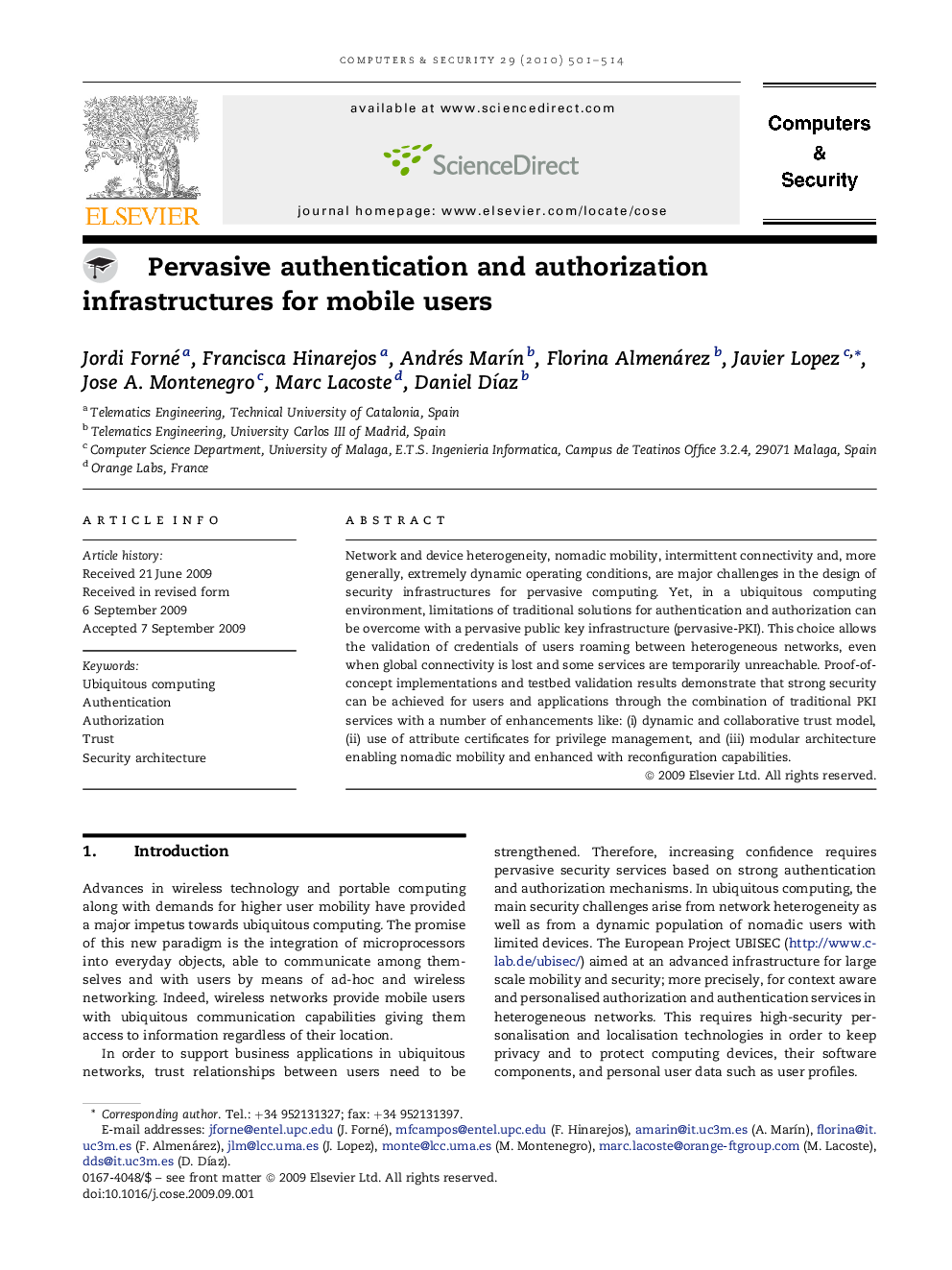| Article ID | Journal | Published Year | Pages | File Type |
|---|---|---|---|---|
| 454813 | Computers & Security | 2010 | 14 Pages |
Network and device heterogeneity, nomadic mobility, intermittent connectivity and, more generally, extremely dynamic operating conditions, are major challenges in the design of security infrastructures for pervasive computing. Yet, in a ubiquitous computing environment, limitations of traditional solutions for authentication and authorization can be overcome with a pervasive public key infrastructure (pervasive-PKI). This choice allows the validation of credentials of users roaming between heterogeneous networks, even when global connectivity is lost and some services are temporarily unreachable. Proof-of-concept implementations and testbed validation results demonstrate that strong security can be achieved for users and applications through the combination of traditional PKI services with a number of enhancements like: (i) dynamic and collaborative trust model, (ii) use of attribute certificates for privilege management, and (iii) modular architecture enabling nomadic mobility and enhanced with reconfiguration capabilities.
